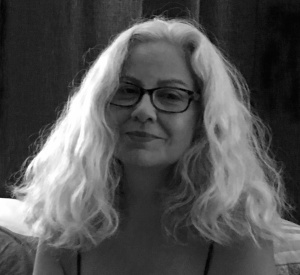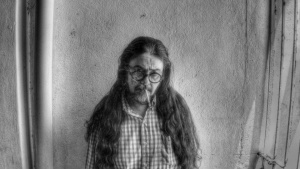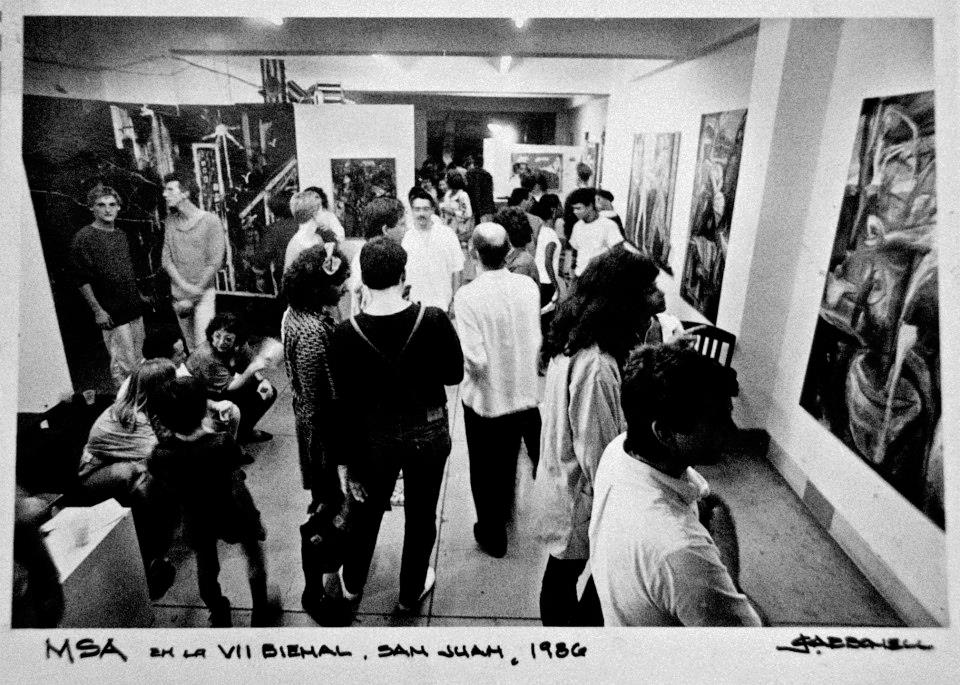
MSA (Manifiesto sintetizado actualizado), synthesis of ideas, individuals and mediums involved in the creative process. This experimental space existed (1985-1991) on the fifth floor of the old building of the SINGER sewing machine company in Old San Juan, Puerto Rico, previous Libreria Campos. Opened on August 30-31, 1985 in San Juan, Puerto Rico, by Teo Freytes, Yrsa Dávila, César Stephenberg, and Roberto Torres, on the same days that the country was shaken with a series of arrests in Puerto Rico, and some cities in United States by FBI against citizens linked to the island’s independence movements, specifically to the group calling itself “Los Macheteros”, but that’s another story.
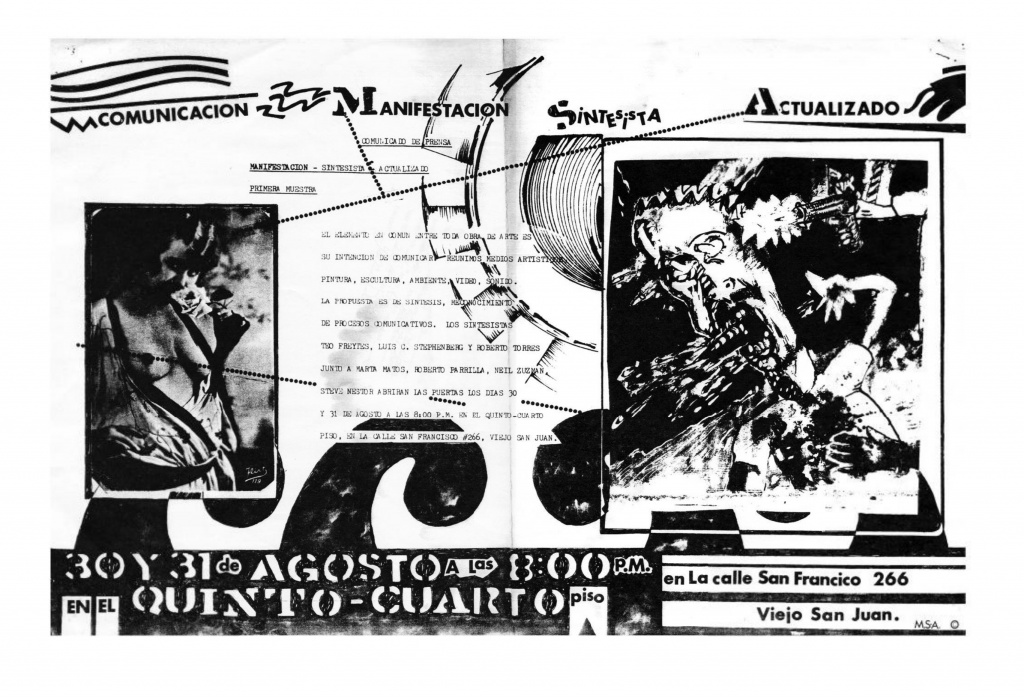
It was a space where visual arts would be presented side-by-side with dance, theater, music, performances, video, and poetry. Within this space, there would be no labeling of works by genre, since the M.S.A. considered everything to be art; which is why no
censorship was applied. In addition to holding events to run parallel with exhibitions, the space was used to introduce the work of young and emerging artists of Puerto Rico and as a workshop for artists. Only one rule: Autonomy / Synthesis = The artist decides what he presents and is responsible for the content of his work.
Place of encounters and debates where the vital element is art, in its different manifestations and the synthesis of everyday elements that confront the viewer with the surrounding world, without restrictions. 30 years later we continue with this task, now in the virtual space.
Teo Freytes, Yrsa Dávila
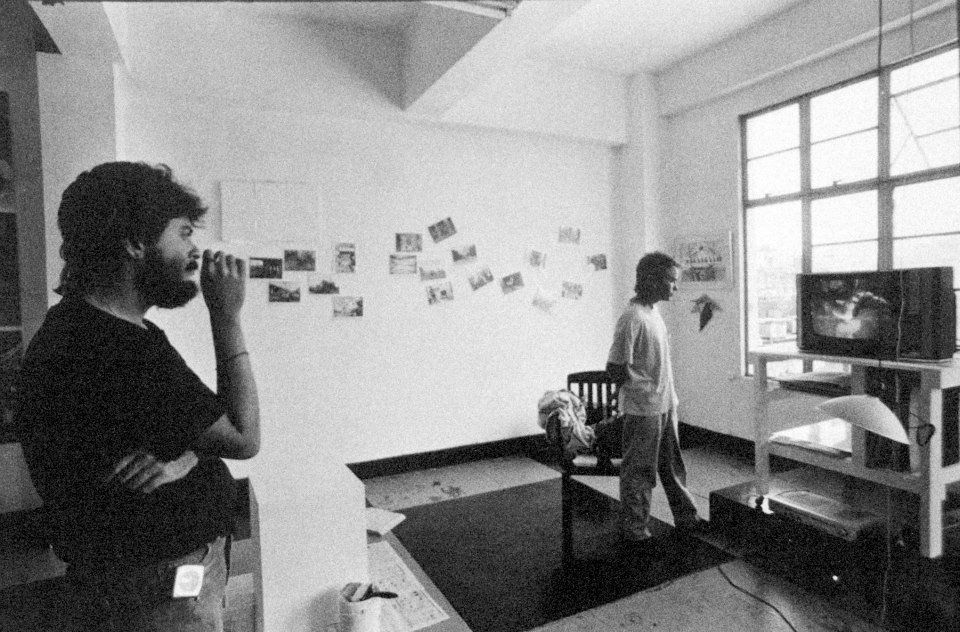
MSA (Manifiesto sintetizado actualizado), síntesis de ideas, individuos y medios involucrados en el proceso creativo. Este espacio experimental existió (1985-1991) en el quinto piso del antiguo edificio de la empresa de máquinas de coser SINGER en el Viejo San Juan, Puerto Rico, antigua Librería Campos. Abre sus puertas el 30 y 31 de agosto de 1985 en San Juan, Puerto Rico, por Teo Freytes, Yrsa Dávila, César Stephenberg y Roberto Torres, el mismo día en que el país fue sacudido por una serie de arrestos llevados a cabo por el FBI en Puerto Rico, y algunas ciudades en Estados Unidos contra ciudadanos vinculados a los movimientos de independencia de la isla, específicamente al grupo que se hace llamar “Los Macheteros”, pero esa es otra historia.
Era un espacio donde las artes visuales se presentarían paralelamente con danza, teatro, música, teatro, performance, video y poesía. Dentro de este espacio, no se etiquetaban las obras por género o medio, ya que M.S.A. considera todo como arte; por eso ninguna obra era censurada. Además de eventos paralelos a las exhibiciones, el espacio se utilizó para presentar el trabajo de artistas jóvenes y emergentes de Puerto Rico, también funcionaba como taller para los artistas. Solo una regla: Autonomía / Síntesis = El artista decide lo que presenta y es responsable del contenido de su trabajo.
Lugar de encuentros y debates donde el elemento vital es el arte, en sus diferentes manifestaciones y la síntesis de elementos cotidianos que confronta al espectador con el mundo circundante, sin restricciones. 30 años después continuamos con esta tarea, ahora en el espacio virtual.
Teo Freytes, Yrsa Dávila
Este proyecto forma parte de Documents of the 20th-century Latin America and Latino Art, Digital Archive and publications Project at the International Center for the Arts of the Americas (ICAA) of the Museum of Fine Arts (MFA), Houston
This Project is part of Documents of the 20th-century Latin America and Latino Art, Digital Archive and publications Project at the International Center for the Arts of the Americas (ICAA) of the Museum of Fine Arts (MFA), Houston
https://icaadocs.mfah.org/s/en/item?fulltext_search=MSA
first Invitation for the Media, And critic, a reach out to communicate.
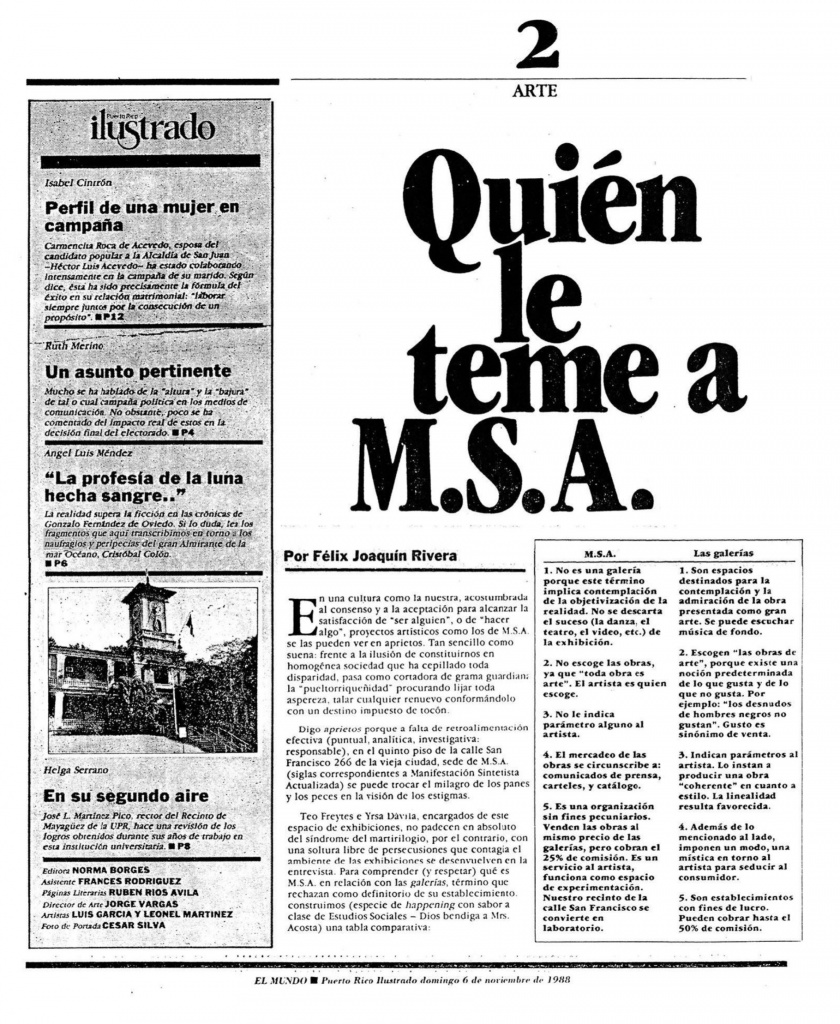
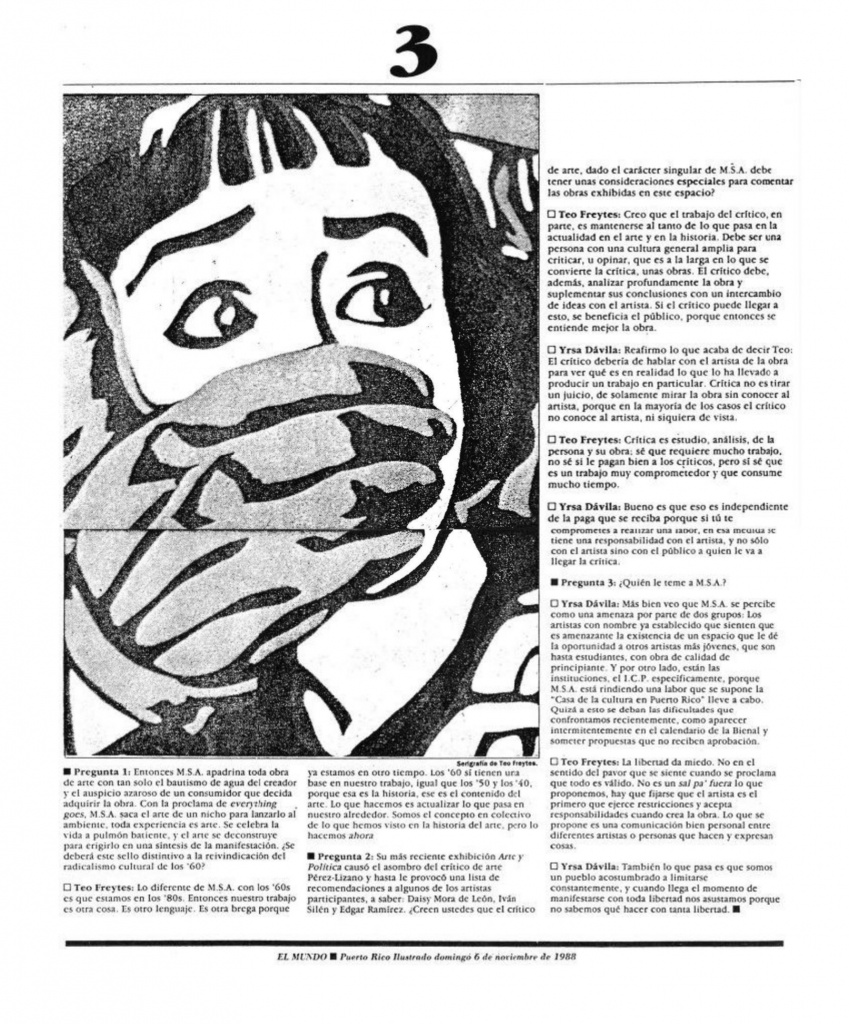
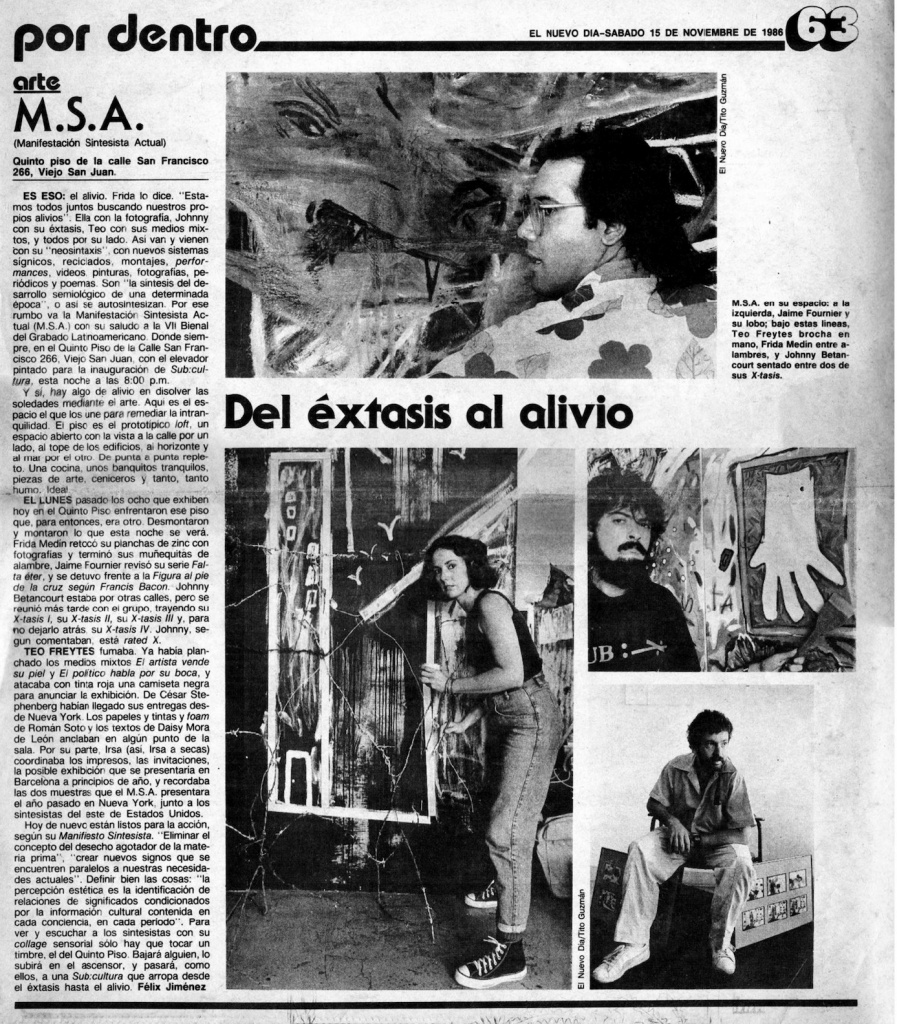
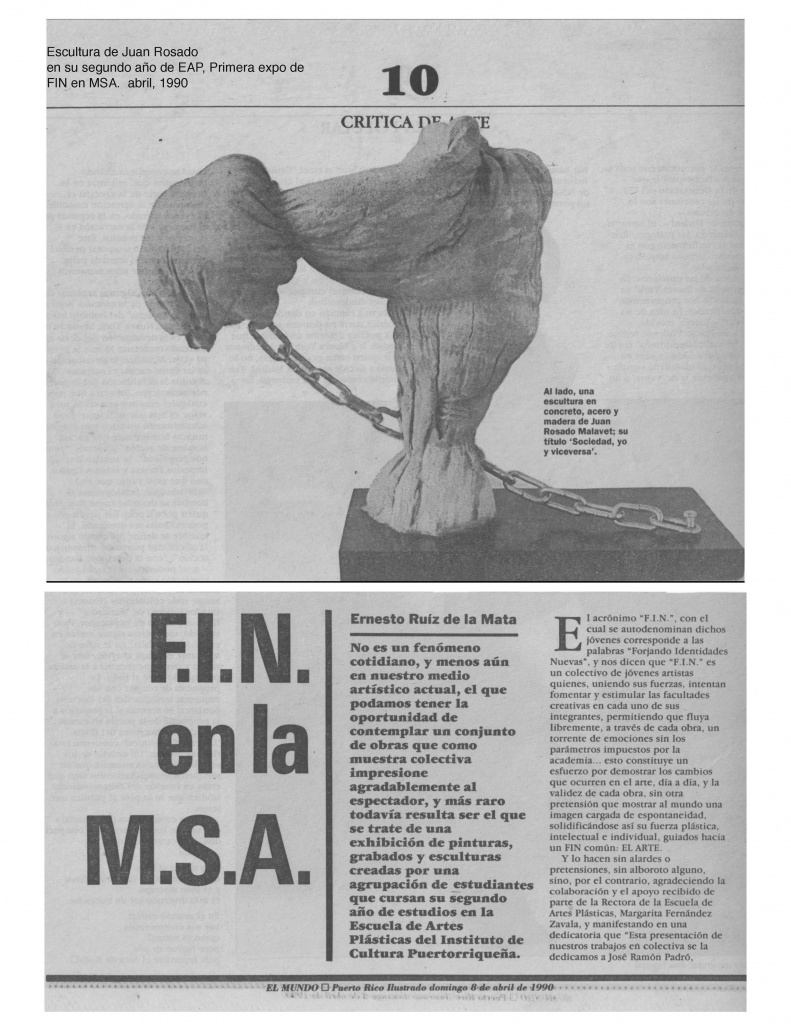
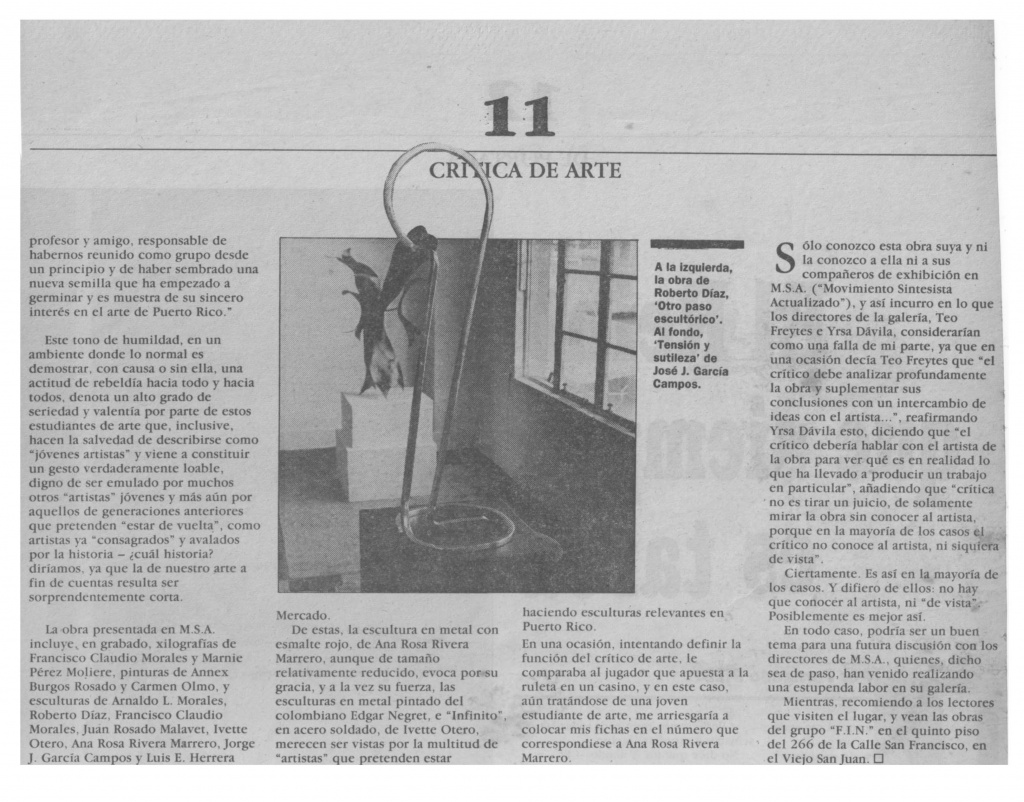
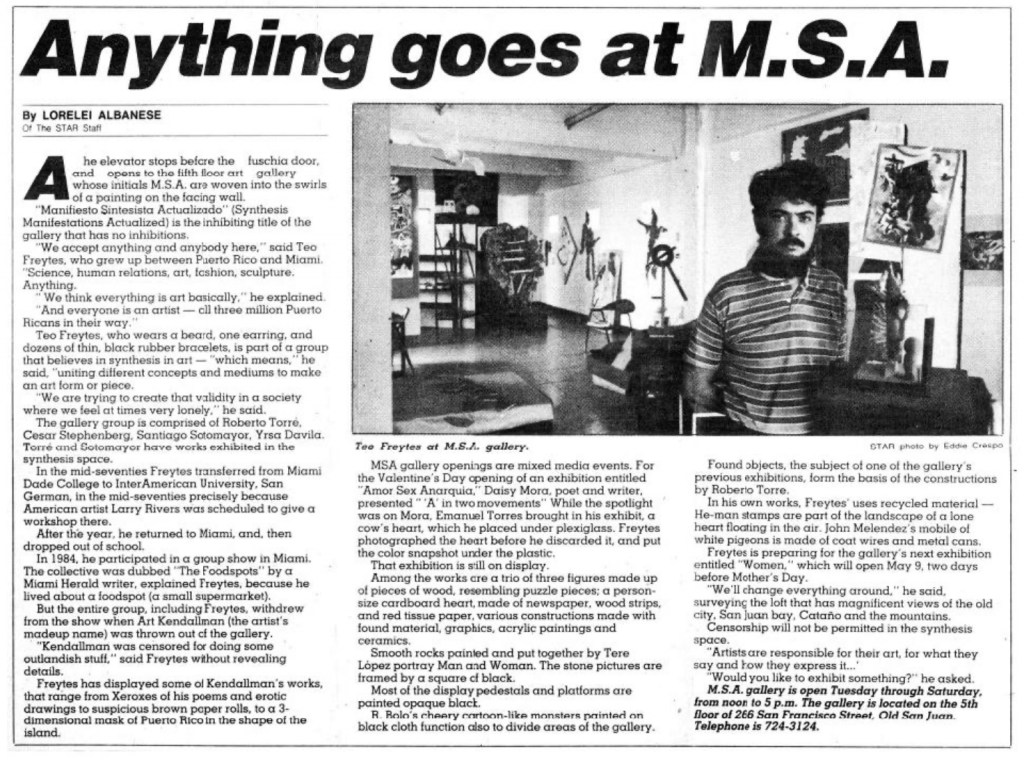
SYNOPSIS
This is an article written by journalist Lorelei Albanese, in which she reviews the exhibition, Amor Sex Anarquía [Love Sex Anarchy] (1986), held at the Galería M.S.A. (Manifiesto Sintetista Actualizado) [Manifesto of Synthetism Today], and directed by artist Teo Freytes. At this gallery, censorship is not permitted; therefore, it accepts all kinds of objectives, forms of self-expression, and people, because from Freytes’s perspective, everything is art. The article also includes information about the years Freytes lived in Miami, which led him to create a space conducive to a synthesis of the arts. At the Galería M.S.A., “Artists are responsible for their art, for what they say and how they express it.”
ANNOTATIONS
The Galería M.S.A. (Manifestación Sintetista Actualizada) was established in Old San Juan by Teo Freytes and Yrsa Dávila on the fifth floor at calle San Francisco 266, as a space where visual arts would be presented side-by-side with dance, theater, video, and poetry. Within this space, there would be no labeling of works by genre, since the M.S.A. considered everything to be art; which is why no censorship was applied. In addition to holding events to run parallel with exhibitions, the space was used to introduce the work of young and emerging artists of Puerto Rico.
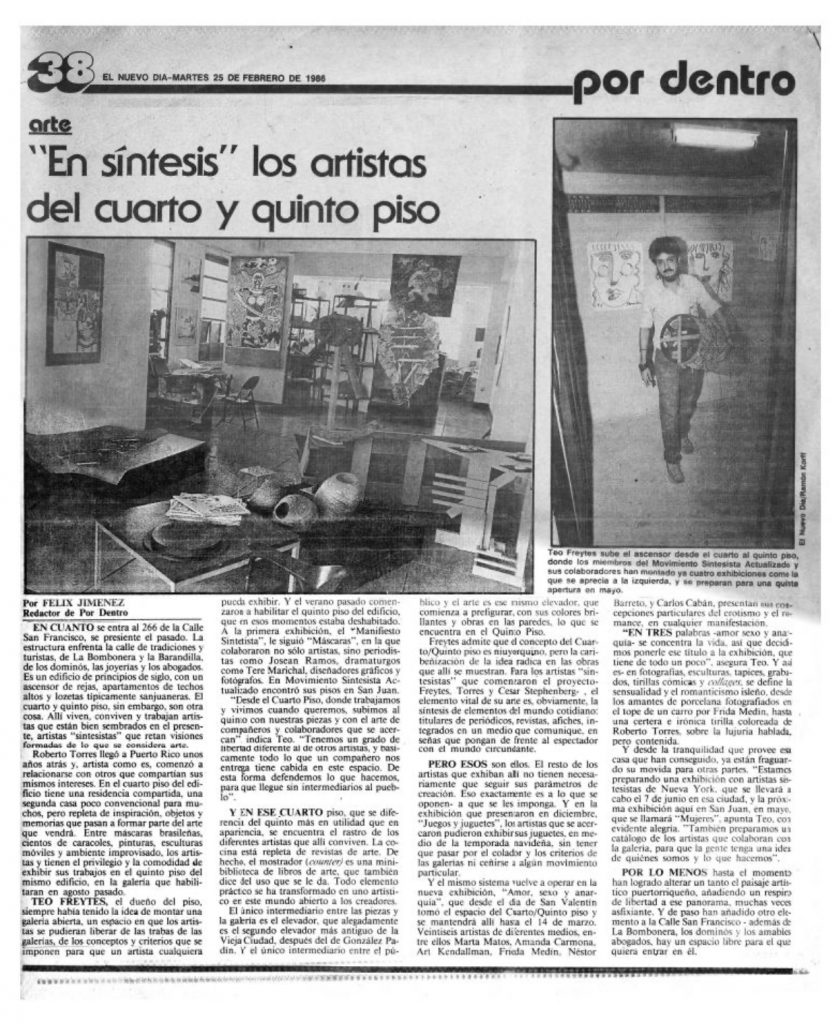
SYNOPSIS
Puerto Rican journalist and professor Félix Jiménez comments on the “spatial” concept of the MSA (Manifestación Sintetista Actualizada) group and the freedom that it provides artists who participate in exhibitions that are not inhibited by any sort of censorship. In an interview, Teo Freytes, one of the group founders, speaks of the vision underlying the space on the fourth and fifth floors of a building in Old San Juan that the group occupies, and where a number of artists live, work, and exhibit their art. It is in this space that the exhibitions, Juegos y juguetes (December 1985), and Amor, sexo y anarquía(February 1986) were held, and Mujeres was scheduled to take place (May 1986). The core work of the MSA consists of fusing elements taken from everyday life, and the artists who show in the space enjoy a degree of freedom unknown to other artists. In Jiménez’s view, it is for this reason that the MSA has altered the Puerto Rican art scene, giving it a refreshing sense of free will.
March/11/2001,Gracias a Luisita Lopez Torregrosa
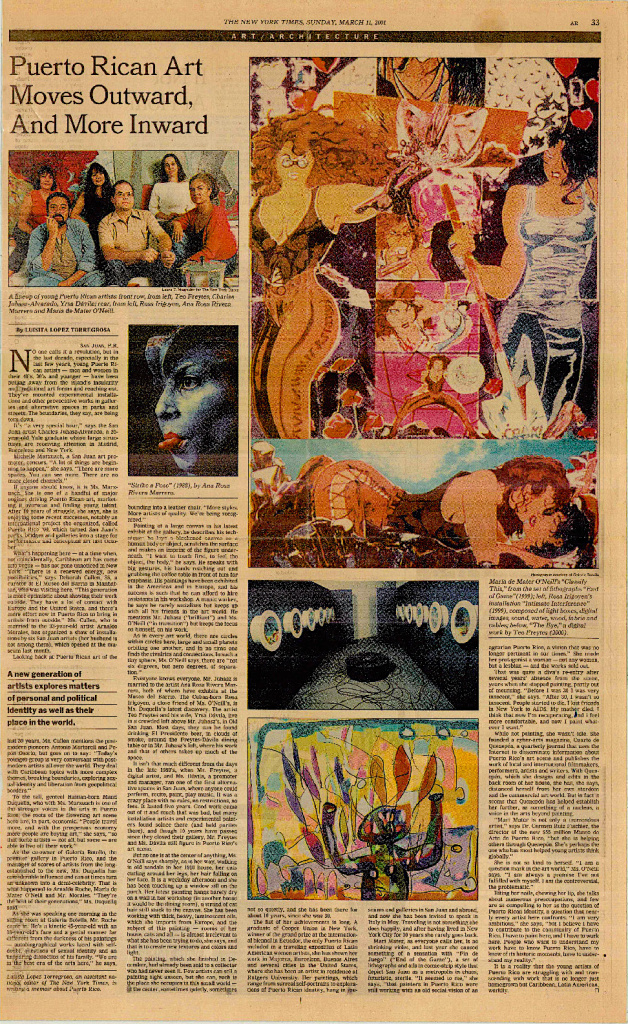
PDF,file click here
